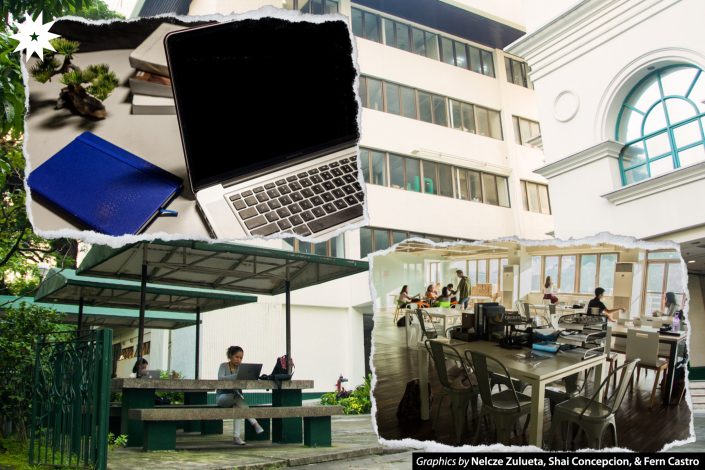
Last year, the Council of Student Organizations (CSO) received criticism over slow approval processes and inconsistencies with transparency during the online setup.
At the start of Academic Year 2022-2023, the committees of CSO, along with the Office of Student Leadership Involvement, Formation and Empowerment (SLIFE) made adjustments to cater to the new setup, as most of their members were unfamiliar with in-person operations.
New requirements and processes
Several processes for online activities remain unchanged amid the gradual return of face-to-face classes, but SLIFE Coordinator for Operations Patrick Aquino highlights that the hybrid setup brings additional steps and requirements for on-site and off-campus events.
Documents used before the pandemic, such as food permits, venue reservations, and campus access permits for guest speakers, were reintroduced to accredited organizations. Some University offices still require hard copy versions of these documents, but CSO Chairperson Ysa Dela Cruz emphasizes that the online processing of these seems “more efficient” for CSO and its organizations.
“That is why the CSO is actively consulting with [SLIFE] to better understand the documents needed as we continue to shift to the hybrid setup of classes,” she says.
Given the recent changes, Aquino adds that more adjustment time is needed for CSO, SLIFE, and other offices and units in order to comply with these processes.
Adapting to the hybrid setup
“Doing hybrid events is like doing two events at the same time,” Executive Vice President for Externals for the Association of Computer Engineering Students Vince Tiangco describes.
Tiangco, who is also an Associate Vice Chairperson for the Activity Monitoring Team for CSO, adds that the lead time for pre-activity requirements has not been adjusted since the pandemic, despite slower processing times.
“Sabihin ko na lang na at least one week [prior to the event], mapasa mo ‘yung pre-acts (pre-activity requirements) kasi mabagal ang [Activity Processing and Screening Committee] ngayon and sobrang dami kasing events [ang nangyayari],” he asserts.
(I will just say that you have to pass the pre-acts at least one week prior to the event because the Activity Processing and Screening Committee is slow nowadays as a lot of events are happening.)
Erica*, a CSO organization officer, discusses issues with the post-activity requirements, specifically the activity report for submission.
“We are required to enumerate what went well and what went wrong during our activity proper,” she explains. “But for events that are publicity campaigns, there’s really not a lot that we can list for it, yet we are expected to list something.”
She adds that response delays from CSO officers are “detrimental to the timelines set by organizations to prepare their requirements.”
“We’ve also observed that some of them aren’t really [well-versed in] their own processes. Meaning to say, some delays experienced by [organizations] are due to those in CSO having to rely on their higher ups for everything, and sometimes their higher-ups also struggle.
Besides adhering to their processes, being open to suggestions given by organizations and coordination are vital, Erica says.
“If one [CSO team] sets a deadline for something, then other [teams] should provide us with the things we need to actually comply with those deadlines,” she asserts.
Another year, another opportunity to improve
Dela Cruz stresses that a feedback form system and termly consultations are in place to gather reports from the accredited organizations for any problems.
“We also create communication lines between the organizations and the CSO by having group chats per organization and per committee so that they will be able to raise their concerns directly to our officers,” she adds.
In response to the issues from the previous years, CSO said that they increased their members to accommodate the influx of projects and events. Regular check-ins and the strict implementation of office hours are in place in order to reduce burnout of the officers. Other operations, such as email processes and submission systems, were reportedly improved.
Aquino, on the other hand, expresses hope for the coming involvement of a Coordinator for Leadership Success and Coaching who will provide more manpower. The new coordinator will optimize and focus on the operations of the CSO and the Lasallian Success Habits in a Networked Environment program.
“We are glad that next term a new coordinator will join our office and will surely give [us] additional manpower to cater [to] our students,” he says, although no further details were provided.
*Names with asterisks are pseudonyms.
